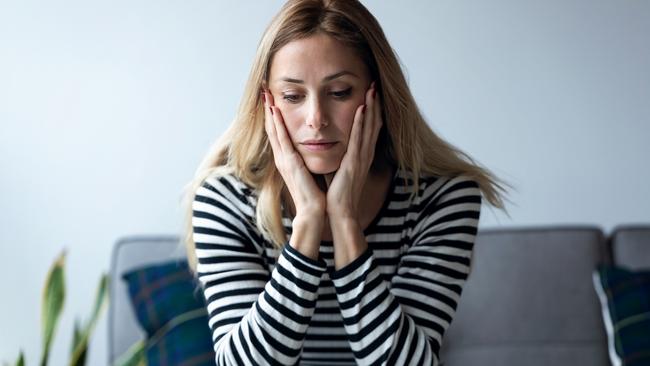New insights into our mental health are alarming
A new question on mental health was added to the 2021 Census. The detail behind it is truly concerning.

A new question was added to the 2021 Census. The question asked if the respondent has been told by a doctor or a nurse that they have any of 10 long-term health conditions, including arthritis, asthma, dementia, or a mental health condition such as depression or anxiety. The biggest single response related to mental health; 2.2 million people of all ages –about 10 per cent of those filling out the census questionnaire – ticked this box.
It’s difficult to gauge the impact of lockdowns on the nation’s mental health; I suspect we will have to wait for the results of the 2026 Census to get a non-pandemic benchmark. But it’s the detail behind the mental health question that is truly concerning. According to the Census, the proportion of females with a diagnosed mental health condition peaks at 19 per cent, at the age of 23. For males, the peak is 10 per cent at age 29.
As is so often the case, more data prompts more questions. Young Australians typically commit to marriage, mortgage, children and career in their late twenties or early thirties. This should be a relatively carefree time in the life cycle, but for some this isn’t the case; it is a time of high anxiety. I wonder if young men are just as anxious (and/or depressed) as young women but aren’t getting, or seeking, support. In either case the Census shines a light on a troubling healthcare issue.
Beyond the early peaks for men and women, the incidence of long-term mental health conditions subsides through the child-rearing stage of the life cycle. Indeed, the low point for a long-term mental health condition is 8 per cent for women at 76 and 6 per cent for men at 80. The most “contented” stage in the life cycle is therefore around the late seventies. And to some extent it’s understandable; this can be a golden era when happy couples revel in family, in grandchildren, in sharing daily moments across life’s remaining years. But soon after 80 the long-term mental health condition curve takes a turn for the worse. It upticks every year, peaking at 20 per cent for women at 99 and 14 per cent for men at 98.
A range of issues probably contribute to poor mental health in very old age. The loss of a spouse, other family members and friends is painful. The loss of mobility and independence is, too. And then there are financial worries, concerns about kids (this never leaves parents) and the nearing presence of death.
I wonder what else might be driving this surge in anxiety and depression as Australians approach extreme old age. Are there regrets; is there remorse; are there broken relationships that remain unrepaired? There must be a better way to manage life’s later years so that regrets are resolved and estrangements are forgiven. Has anyone in the aged care industry prepared a pathway for the elderly to navigate life’s later journey? What might this look like?
First wave Baby Boomers are right now passing into their (hopefully blissful) late seventies – but according to this evidence, by the early 2030s many will be suffering from an epidemic of loneliness, anxiety and depression. Best to have uncomfortable conversations about how to manage this issue now rather than later.




To join the conversation, please log in. Don't have an account? Register
Join the conversation, you are commenting as Logout